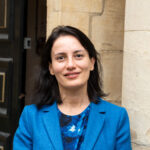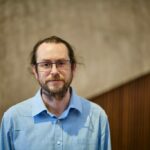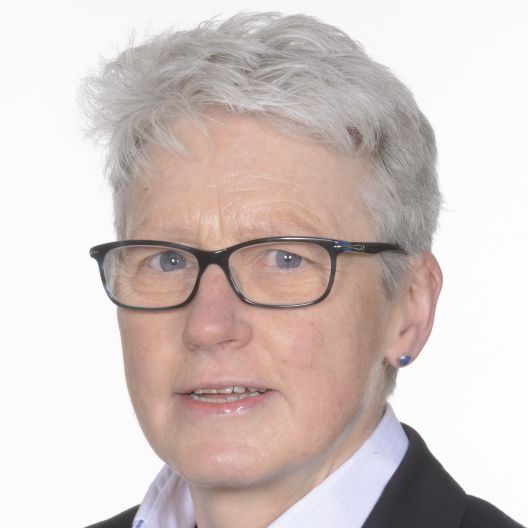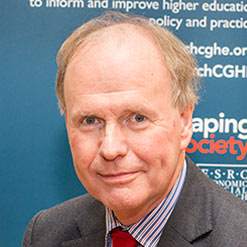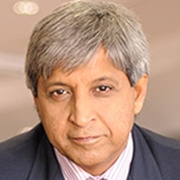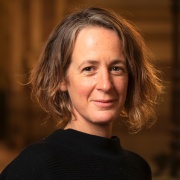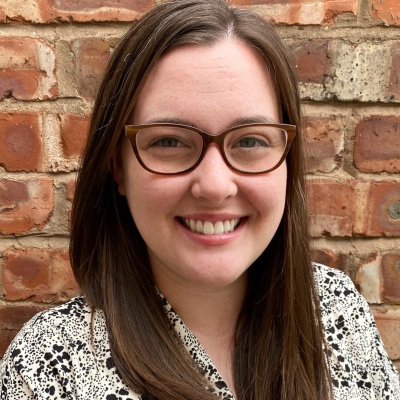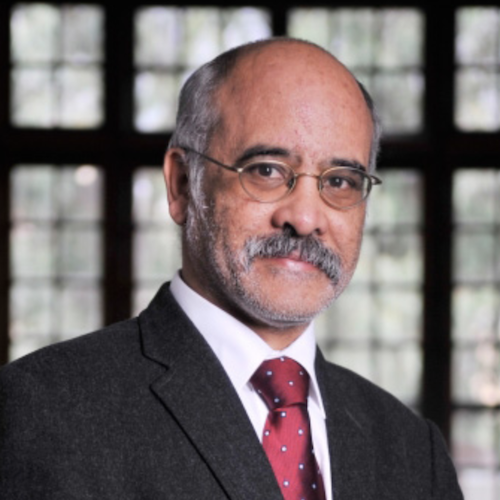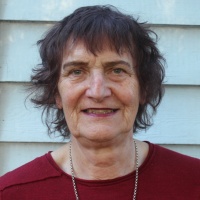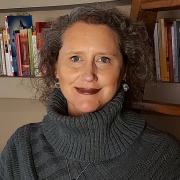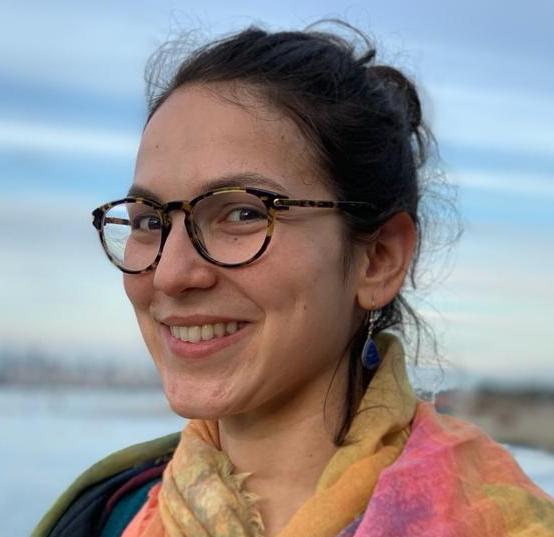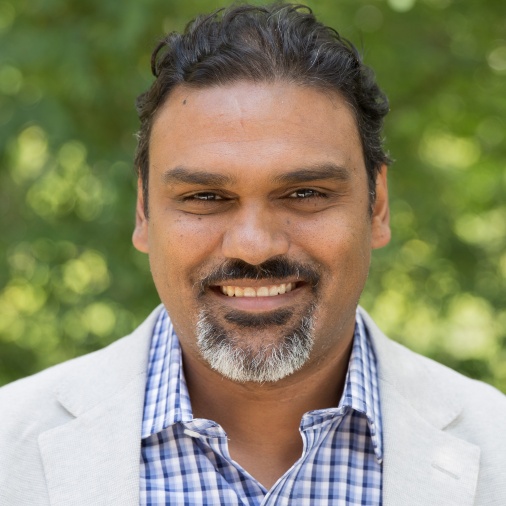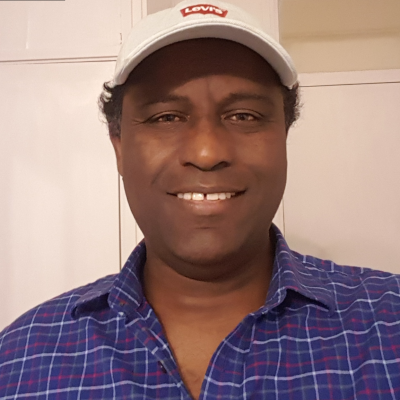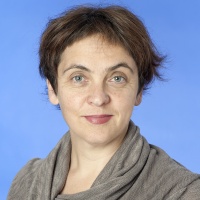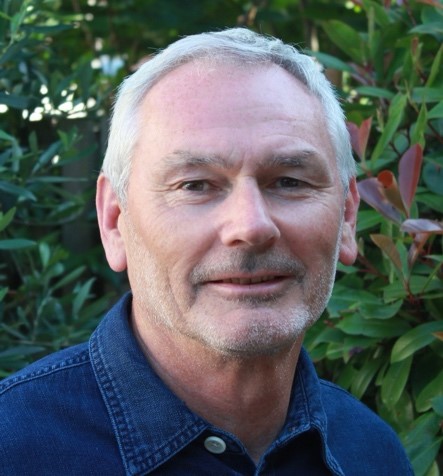CGHE Annual Conference 2022 – Higher education knowledge in a plural world
- Simon Marginson, University of Oxford and University of Bristol
- Claire Callender, University College London
- Paul Ashwin, Lancaster University
- David Mills, University of Oxford
- Janja Komljenovic, Lancaster University
- Tristan McCowan, University College London
- Rachel Brooks, University of Surrey
- Maia Chankseliani, University of Oxford
- Lee Rensimer, University College London
- Natia Sopromadze, University of Oxford
- Vincent Carpentier, University College London
- Ka Ho Mok, Hang Seng University (Hong Kong)
- Ellen Hazelkorn, BH Associates and TU Dublin
- Alis Oancea, University of Oxford
- Gemma Derrick, The University of Bristol
- James Robson, University of Oxford
- Maria Rucsandra Stan, Carlo Cattaneo University/University of Oxford
- Xin Xu, University of Oxford
- Diana Laurillard, IOE, UCL’s Faculty of Education and Society
- Eileen Kennedy, IOE, UCL’s Faculty of Education and Society
- Golo Henseke, IOE, UCL’s Faculty of Education and Society
- Michael Shattock, University of Oxford
- Aniko Horvath, VU Amsterdam
- Elisa Brewis, CGHE, Department of Education, University of Oxford
- Natasha Robinson, University of Oxford
- Trish Greenhalgh, University of Oxford
- Peter Scott, IOE – UCL’s Faculty of Education and Society
- Adam Habib, SOAS University of London
- Keri Facer, University of Bristol
- Jenna Mittelmeier, University of Manchester
- Aline Courtois, University of Bath
- Crain Soudien, Former CEO, Human Sciences Research Council, South Africa
- Raewyn Connell, University of Sydney
- Fernanda Beigel, Universidad Nacional de Cuyo
- Sharon Stein, University of British Columbia, Canada
- Riyad A. Shahjahan, Michigan State University, US
- Solomon Zewolde, University College London (UCL)
- Stephanie Allais, Wits University, South Africa
- Phillip Brown, Cardiff University
- Nicola Ingram, Manchester Metropolitan University
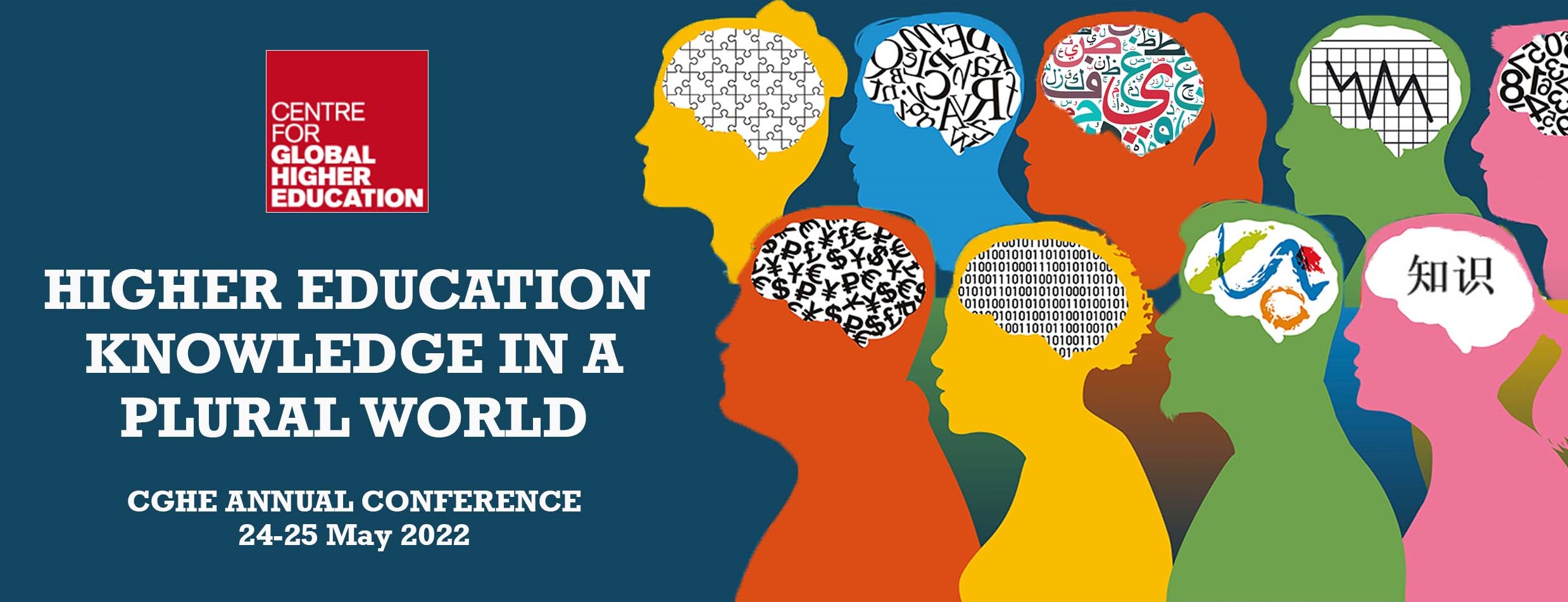
Conference website
The CGHE Annual Conference returned for its seventh edition on 24-25 May 2022.
Day 1: Tuesday 24 May 2022
9.00am (UK)
Conference opening and welcome
Simon Marginson
Read chat transcription
View slides
Watch session recording
Chair: Paul Ashwin
Speaker: Trish Greenhalgh, Nuffield Department of Primary Care Health Sciences, University of Oxford
Science is a social act. It takes place in a social, cultural and political context in which particular questions are deemed worth pursuing and other questions are deprioritised or never asked. When the pandemic broke, the scientific community rapidly repurposed its infrastructure and resources to build the evidence base about the nature, spread, diagnosis and treatment of COVID-19. These efforts were shaped and constrained by particular research traditions and scientific practices—and by entrenched regimes of truth linked to hard-won hierarchies of power and influence. Scientists became swept up in the pressure and pace of COVID-19 research and in the increasingly acrimonious debates playing out in both academic and lay media about which (and whose) evidence represented the truth. Post-normal science rapidly morphed from a fringe interest of sociologists of science to become an uncomfortable new reality for university academics who had up to now enjoyed their ivory-tower world. This lecture will use one worked example—the contested field of research on public masking—to illustrate some theoretical ideas about science and science communication in these post-normal times. It will explore why, more than two years into the pandemic and with hundreds of published studies, some scientists still believe there is “no evidence” that masks work while others view the efficacy of masking as a well-established “fact”—and why debates between the different “camps” of scientists played out so prominently in the public sphere. I will draw briefly on the work of critical social scientists such as Latour, Bourdieu and Foucault, and philosophers of science including Kuhn and the pragmatists.
10.10-10.30am
Break
10.30-11.30am
Mapping the supranational higher education space
Read chat transcription
View slides
Watch session recording
Chair: Janja Komljenovic
Speakers: Tristan McCowan, Rachel Brooks, David Mills, Maia Chankseliani, Lee Rensimer, Natia Sopromadze, Natasha Robinson
Across an increasingly complex and dynamic global higher education system, researchers and policy analysts are revising their analytical framings and spatial imaginaries. This panel showcases a CGHE research project that explores four different examples of the ’supranational’ as manifested in higher education policy and practice. One explores how the European Universities Initiative (EUI) is reimagining Europe as a higher education space, a second offers an analysis of the flows of global HE aid to specific national HE systems, a third explores the role of international funding and knowledge flows in the development of higher education and research in the Caucasus and Central Asia, whilst a fourth tracks the emerging Africa-China nexus of scholarship funding and training collaborations. After a brief introduction to the ‘supranational’, each project will explain how it is making sense of these supranational dynamics, and the changes to higher education that result. The panel will then open up a broader conversation about the links between these spaces and flows of ideas, people, policy and funding.
11.30-11.50am
Break
11.50am-12.50pm
PANEL: The future of international student mobility
Read chat transcription
View slides
Watch session recording
Chair: Vincent Carpentier
Speakers: Rachel Brooks, Jenna Mittelmeier, Ka Ho Mok, Aline Courtois
International student mobility has greatly expanded and diversified over the last few decades. It also currently faces a series of ongoing economic, social, (geo)political and environmental challenges which have been exacerbated by the Covid-19 pandemic. Contemporary discussions point to the importance and vulnerability of international student mobility while also debating the need for transformations. In this panel, our four speakers will reflect on some key aspects of the future of international mobility with a focus on the questions of inequality and migration.
Rachel Brooks will discuss objectives in the UK and elsewhere to open up international student mobility to a more diverse group of students. She will assess progress towards this goal, but suggest that although there are some signs of participation widening, this has been accompanied by a greater stratification of opportunities, with those from more advantaged backgrounds more likely to be found in higher quality/status schemes. Ka Ho Mok will reflect upon the future of international higher education from geo-political and socio-psychological perspectives. In a context where the COVID-19 pandemic has intensified the discussion about a global crisis for higher education associated with inequality, based on a survey on Asian students’ overseas learning preferences he will identify and discuss the major factors that shape the students’ destination choices and their desires for international education. Aline Courtois will examine the future of student exchange programmes in Europe. She will discuss how short-term student mobility is (re-)shaped by higher education institutions as they grapple with diminished resources and an increased emphasis on quantitative participation targets. Drawing on a study conducted in Ireland, she examines how the Erasmus ‘year abroad’ is promoted and managed within the constraints of marketised higher education institutions, and how it is re-shaped as a result. Her findings show that the ‘year abroad’ has become shorter, dis-embedded from academic programmes, and stratified as the offer expands and diversifies within an unequal system. Jenna Mittelmeier will discuss how the relationship between public perceptions and political discourses may (or may not) shape future international student mobility. International student mobility has historically shown to be both reactive and resilient. This has been particularly highlighted by the COVID-19 pandemic, where student mobility restrictions in countries such as the US and Australia saw sharp drops in international enrolment, only to see hints of recovery as borders opened back up. Yet, she notes that anti-immigration political discourse is on the rise questioning whether future mobility will be influenced by students’ experiences with xenophobia while abroad. She will discuss research in many host countries demonstrating an increasingly mixed public perceptions about the value of international students.
12.50-1.50pm
Lunch break
1.50-2.50pm
KEYNOTE: Reinventing Higher Education for an Inclusive World
Read chat transcription
Watch session recording
Chair: David Mills
Speaker: Adam Habib, Director of SOAS University of London
Universities continuously speak of the importance of inclusive, equitable and quality education. Yet daily we institutionally behave in a manner that deepens inequalities and institutional divides. Global partnerships, scholarships and mobility across the world are features of the globalisation era. Yet the brain drain not only persists, but has escalated dramatically, weakening institutions in many parts of the developing world.
Higher education and the business models that underpin it must be fundamentally reimagined if they are to rise to our current challenges. This reinvention requires at its core a new methodology of global partnership, one that is more rooted in institutions than individuals. It requires joint teaching programs, co-curriculum and split-site scholarships that would enable students to gain scientific knowledge, develop a global consciousness, have access to new equipment and funding networks and yet be sufficiently rooted in institutions of the developing world to allow for this knowledge and skills to be deployed within local contexts. It requires co-financing and co-ownership of research centres and institutes between multiple universities in the North and South.
This is essentially a call for an academy of the commons. For centuries, we have pretended that science has no boundaries. Yet every day we establish institutional and national boundaries that constrain science, knowledge and innovation. We need to break down these boundaries, borrow and learn from each other in a collaborative and equal manner. Lessons learnt and innovations developed in particular contexts could lead to changes in the rest of the world. A global academy of the commons needs to be built so that we collectively understand how innovation can play a part in creating a more inclusive world.
2.50-3.10pm
Break
3.10-4.10pm
The role of research in higher education and research assessment
Read chat transcription
View slides
Watch session recording
Chair: Ellen Hazelkorn
Speakers: Alis Oancea, Gemma Derrick, James Robson, Maria Rucsandra Stan and Xin Xu
In this session, we will share insights from our ongoing empirical work on six research systems that have been differentially shaped through formalized performance-based periodical assessments of research (in Australia, England, Italy, New Zealand, Norway, Hong Kong SAR). The study explores reflectively these systems and places them in critical dialogue with experiences from other contexts, including from Africa, Latin America and North America. During the session, we will outline emerging findings on the policy frames and configurations of these systems and their relationships with global dynamics of knowledge. We will also anticipate the next phase of the study, which dives into organisational framings for research, including structures, missions, cultures, practices and inter-sectoral links; and listens actively to individual accounts of the lived experience of a wide range of participants and stakeholders in the research (eco) system. We draw on these insights to design and pilot a survey of global dynamics of research that takes a balanced and participatory approach across both the global north and the global south. We aim for the findings to recognise and showcase the diversity of voices and cultural traditions and contexts in relation to understandings of research values, quality, impact and equity, as well as to provide implications from the standpoints of various stakeholders.
4.10-4.30pm
Break
4.30-5.30pm
PANEL – Broadening the epistemic agenda: equity and diversity in global circuits of knowledge
Read chat transcription
View slides
Watch session recording
Chair: Alis Oancea
Speakers: Crain Soudien, Xin Xu, Raewyn Connell and Fernanda Beigel
Drawing on philosophical, sociological, political and educational critiques of the patterns of inequity that characterise global conditions and practices for generating, defining, circulating and recognising research knowledge, the four panellists will seek to articulate principles and priorities for broadening the epistemic agenda for higher education research. First, the panel will explore possibilities for cultivating research that is attentive to communities and/or that may disrupt hegemonic practices and structural barriers to epistemically just knowledge creation and sharing. It will then reflect on the role of open networks and of collaborations across visible and invisible borders in sustaining diverse knowledge ecosystems. To do so would require enacting institutional change that supports epistemic shifts towards valuing indigenous and local knowledges, as well as changing incentive structures towards a research agenda that advances an equitable and socially relevant project of Southern open science.
Crain Soudien will explore the conditions for developing what Catherine Odora Hoppers describes as ‘sustainable cross-border’ praxes in the university. The ‘border’ she refers to is that which divides what we know as ‘Western’ forms of knowledge from those which can be described as indigenous knowledge. Prompting her argument is the difficulty of sustaining initiatives which seek to bring together mainstream Western science practices and discourses and other knowledge traditions. Soudien will reference examples of such attempts in the talk and describe the challenges in building and sustaining them. He suggests, drawing from Hoppers, that to build and sustain requires moving away from ‘supply side’ science to science and knowledge practices which are attentive to what communities need. Supply side science subsists in knowledge economies of presumption. ‘Experts’ know what is important for society. Demand side practices seek to work with the issues and problems raised in and by communities. They call for the exploration of modes of enquiry which work with the best of what we know, irrespective of where it comes from. Soudien will draw on Bonnie Honig’s idea of ‘holding cultures’ and Lovisa Bergdahl and Elisabet Langmann’s suggestion of how they might work to explore possibilities for keeping holding cultures alive while holding on to their disruptive potential.
Xin Xu notes that in global research epistemic diversity co-exists with epistemic inequity and injustice. On the one hand, the global knowledge pool can be seen as an open and shared space with diversified languages, cultures, agents, agendas, theories, and paradigms. It consists of knowledge agents from various disciplinary areas, cultural contexts, and personal backgrounds. All can form and foster open networks and collaborations beyond visible and invisible borders. On the other hand, however, the global research system includes not only knowledge and agents, but also power. Here, power acts not just as a coercive force, but through knowledge in capillary and hegemonic forms – it circulates throughout the research space and defines what counts as legitimate knowledge. Hegemonic power creates an inclusion/exclusion divide in the global knowledge pool, where only certain knowledge is codified to be seen, used, trusted, and valued. In her comments, Xu aims to unpack such a paradoxical situation, drawing on empirical evidence and scholarly discourses. She will consider various manifestations of epistemic hegemony and inequity in global research, including the misuse and limitation of certain bibliometric databases, and discuss ways to move beyond these and towards alternative futures of global research.
Raewyn Connell will focus on imperial knowledge and its others. The basis of the mainstream curriculum in higher education, worldwide, is the research-based knowledge formation, materialized in institutions and workforce. This knowledge formation is not simply ‘Western’, rather it was formed in empire and is now supported by a global economy of knowledge with a geopolitical division of labour. Empire laid the foundation for the exclusion of indigenous knowledges, alternative universalisms, local knowledges, and the southern theory arising from struggles in colonial societies. Many attempts have been made to include these knowledges in higher education, from the 18th century on. But in contemporary conditions higher education has been made more resistant: through corporate management, commodification, league tables and political controls. Epistemic change requires institutional change. To convince people that this is possible it is important to recover the ‘other history’ of universities and research – from al-Azhar to Visva-Bharati and RUIICAY, labour colleges to free universities, natural history to popular sciences.
Fernanda Beigel will discuss the circulation of knowledge beyond the mainstream landscape of science publication, starting with a commentary on the global belief in the robustness of highly developed indexing services such as Scopus or Web of Science (Clarivate) to observe world science and to inform research assessment procedures that rely largely on the impact factor and other bibliometric indicators. These indicators of impact are supposed to represent a universal standard, that of the large mainstream journals, but have produced several distortions and have had noxious effects in boosting the social relevance of science. The hyper-centrality of English in these databases has been extensively criticized because losing multilingualism means diminishing scientific interculturality and local research agendas. However, seen from the perspective of the periphery, English is indeed a dominant reality, but it is not the unique reality, because there are Southern circuits with diverse means for the circulation of knowledge in other languages, formats and journals. A comparative study on the global and regional data-sources existing in Latin America will show this diversity in terms of language, but also the critical tension existing between a commercial publishing industry and the university managed journals that can be accessed in Diamond route. To broaden the scientific landscape is relevant to change incentives for a socially relevant research agenda and advance in an equitable project of Southern open science.
5.30-5.35pm
Close of day
Simon Marginson
Day 2: Wednesday 25 May 2022
9.00am (UK)
Conference opening and welcome
Simon Marginson
Read chat transcription
View slides
Watch session recording
Chair: Claire Callender
Speaker: Peter Scott, IOE – UCL’s Faculty of Education and Society
Back in 1972 Burton Clark introduced the idea of an organisational ‘saga’ in higher education. In my lecture I repurpose this concept, and extend it to the system level. Clark defined a ‘saga’ as, first, structural and organisational arrangements – which I term the ‘foreground’ – and, second, a set of beliefs and values – the ‘hinterland’.
Currently there is one dominant ‘saga’ permeating both policy and practice and conceptualisations about higher education. This is to see universities predominantly in relation to political economy – with greater emphasis on economy in terms of skills and knowledge production, although in the light of the contest between globalisation and populism (and ‘woke wars’) there is now a strong dash of politics too.
Often this ‘saga’ is reduced to subordination to neoliberal ideas – mistakenly, I argue, because the same focus on political economy was apparent in the era of the welfare state when the idea of mass higher education was born, although then it was as much on social reform as on economic growth and the efficiency of the market. In other words, the foreground has stayed constant even if the hinterland has changed.
Almost every feature of the higher education landscape reflects this dominant ‘saga’ – the striving for ‘excellence’ (buttressed by rankings), the popularity of contractual (in place of fiduciary) funding, the growth of research assessment, the focus on student outcomes, the irresistible rise of corporate-style governance and management…
The lecture explores the possibility of an alternative ‘saga’, focused on human rights and democracy as much as political economy.
10.10-10.30am
Break
10.30-11.30am
PANEL – Coloniality and racism in higher education
Read chat transcription
View slides
Watch session recording
Chair: Xin Xu
Speakers: Sharon Stein, Riyad Shahjahan, Solomon Zewolde and David Mills
Coloniality and racism shape global higher education and research. However, challenges to such injustice and inequity have never ceased. Anti-racism and decolonial movements, activities, scholarships, pedagogies and voices are manifest in various forms. They call for critical reflections on and radical changes to racialised cultures and colonial imprints, and the rethinking, relearning, reimagining and remaking of global higher education and research. Meanwhile, anti-racism and decolonisation also suggest questions and are confronted with challenges. This panel brings together four critical scholars working in this field, who draw on empirical research to critically reflect upon decolonisation and anti-racism in higher education and research.
Among the speakers, Sharon Stein will offer a social cartography of different, and not necessarily mutually exclusive approaches to engaging change in relation to coloniality and racism in higher education. She will also ask what kind of education could prepare those of us who work and study in higher education to hold space for the intellectual, affective, and relational difficulties that inevitably arise in efforts to confront colonialism in higher education. Riyad Shahjahan will introduce Whiteness as futurity framework (Shahjahan & Edwards, 2022), and its three components: Whiteness as aspiration, investment, and malleability. He will next offer a critical race temporal account of contemporary mobility trends in global higher education, namely: mobility of imaginaries, mobility of people, and mobility of resources. Whiteness as futurity uncovers the ways in which local subjects do not autonomously direct local higher education processes, but instead are influenced by the global pressures of Whiteness. Solomon Zewolde will question why progress to decolonise the HE curriculum is so disappointingly slow despite a burgeoning publication of critical texts and the proliferation of initiatives that purport to fight coloniality and racism in higher education. Using Marcuse’s concept of ‘repressive tolerance’, he will discuss how higher education institutions perpetuate and maintain racism and coloniality through Eurocentric epistemology and pedagogical practices and silence and ignore voices calling for radical changes. David Mills will critically examine the bibliometric coloniality. He will argue that the metricisation of the global academic publishing economy is devaluing the credibility of African scholarly journals, reinforcing academic coloniality and deepening epistemic exclusion. David will explore the neo-coloniality of this credibility economy, and the amplification of the emotive discourse around so-called ‘predatory’ publishing by commercial actors.
11.30-11.50pm
Break
11.50am-12.50pm
PANEL – It’s about more than employability: Critical views of higher education and the economy
Read chat transcription
View slides
Watch session recording
Chair: Ka Ho Mok
Speakers: Stephanie Allais, James Robson, Phillip Brown, Nicola Ingram
In the last two decades, there has been a significant increase in higher education enrolment not only in the global North but also in the global South, and this has become associated with a perceived oversupply of graduates for local and global labour markets. Intensified competition and mismatched job fit have created new challenges for graduates. Drawing from comparative and international perspectives, this panel critically discusses issues related to higher education and the economy, with reference to graduate employment and youth transition issues. Speakers will critically examine human capital theory for overpromising that individual investment in higher education would result in prosperous career development and advanced social mobility for graduates.
The four speakers will each briefly introduce the topic, followed by discussion. As Nicola Ingram will remark, there are many different ways of being a graduate in ‘the degree generation’, but the term graduate is laden with particular social meanings and often conjures notions of career success defined through financial reward. In the UK, the concept of ‘graduate success’ is realised through the social construction of the ‘graduate job’ where the contemporary graduate is brought into being through policy frameworks (such as Teaching Excellence and Student Outcomes Framework (TEF)) and measurement tools (such as the DLHE and Graduate Outcomes surveys), with their emphasis on narrowly circumscribing success. The symbolic implications of being a graduate are often overlooked and there is a lack of recognition that success means different things to different people. Moreover, the complexity of the graduate labour market transition process rather than outcome, and attendant implications for race, class and gender based inequalities, is rendered invisible in the metrics game that universities are lured into through the demands of higher educational policy. Stephanie Allais looks at ‘employability’ from the South and specifically from Africa, finding it an unhelpful way to think about the education/employment relation. She will highlight the trite use of employability in the interventions of donors and development agencies in developing countries; the large differences between elite and non-elite jobs/work in African countries; and the small changes in the structure of African labour markets during the period in which primary, secondary, and university enrolments have rapidly increased To improve higher education as a preparation for work we need to understand how national economies, labour markets, education and training systems, including the knowledge and skills produced are shaped by the location of those national economies in the global economy. Thinking about the role of universities, graduates, and skilled work through a Eurocentric reading of development ignores the history and ongoing structure of capital and wealth accumulation through transfers of value from ‘underdeveloped’ to ‘developed’ countries.
Phil Brown will consider different interpretations of the fourth industrial revolution and the role of digital technologies in (re)shaping the future of work, higher education, and employability. He will outline a theory of ‘job scarcity’ rather than ‘labour scarcity’, challenging many cherished public policy assumptions about higher education, employability, and the ‘graduate’ labour market. James Robson will argue that while the relationship between higher education and the economy is crucial, we need a new way of thinking about the economic purpose of HE that moves beyond flawed and outdated assumptions of orthodox economics. The economic role of higher education should be to take a deliberately disruptive approach to the economy, invert traditional models of supply and demand, and seek to drive economic change in a way that benefits society. Through the transformative value of learning new knowledge and skills, higher education should support students to become agents of change, demanding meaningful, value-driven, and purposeful work and a ‘purposeful economy’. Through individual graduate agency, higher education can become the mechanism of macro-economic transformation.
12.50-1.50pm
Lunch break
1.50-2.50pm
PARALLEL SESSIONS
Chair: Diana Laurillard
Read chat transcription
View slides
Watch session recording
Graduating into a global pandemic: the experiences of Chemistry and Chemical Engineering graduates
Speaker: Paul Ashwin
The Graduate Experiences of Employability and Knowledge (GEEK) Project is examining the experiences of Chemistry and Chemical Engineering graduates from six universities in England, South Africa and the United States of America. In the ‘Understanding Student Knowledge and Agency’ project, we initially tracked these graduates through their undergraduate degrees. In the GEEK project, we are now examining how these graduates’ engagement with their discipline appears to impact on their worldviews and agency, employability and career, and wider social and cultural embeddedness in society. In this paper, we will report on how these students experienced graduating during a global pandemic and the role their discipline played in helping them to make sense of these experiences.
Graduates’ responses to student loans in England
Speakers: Claire Callender and Susie Davis
Student borrowing is a major public policy issue in England. Unlike many European countries, England is dependent on student loans to help finance higher education, fuelling its expansion and greater access. Loans have made higher tuition fees politically and socially acceptable and led to growing levels of student loan borrowing and debt. Extant research in England has considered prospective and current students’ attitudes to income-contingent loans but graduates’ perspectives have been ignored. This session, drawing on data from 98 in-depth qualitative interviews with English graduates, examines their attitudes to undergraduate student loans and the influences of loans on their lives.
———
Chair: Maia Chankseliani
Read chat transcription
View slides
Watch session recording
What skills do employers associate with degree qualifications?
Speaker: Golo Henseke
The reconfiguration of education-occupation linkages in the wake of the mass expansion of higher education and its potential impact on skills requirements and graduate pay has received scant attention in the research literature.
Using a kaleidoscope of data, including worker-reported job tasks and pay information as well as skills requirements from a large number of job ads, this presentation seeks to provide new evidence on the importance of job upskilling for the rising degree requirements and graduate pay.
Between 1997 and 2017, the proportion of jobs requiring degree-level qualifications almost doubled in the British labour market. While some scholars argue that the increasing demand for university degrees represents job upskilling, others suggest that degree requirements ratchet up through signalling or credentialism without economic or technological justification.
We find that changes in job tasks can fully explain the rise in degree requirements until 2006. However, from 2006 to 2017, the expansion of jobs requiring degree-level qualifications became decoupled from the task content of jobs, with adverse consequences for graduates’ pay.
We complement the analysis of worker reports with an assessment of employer reported skills requirements through a study of job adverts.
Universities and Regions: confronting the ‘levelling up’ agenda
Speakers: Michael Shattock and Aniko Horvath
There is general agreement (McCann 2019, IPPR North 2022 and Levelling Up White Paper 2022) that the UK represents the extremes of regional inequality and that this extends to areas of multiple deprivation in otherwise affluent regions. Historically the university system developed without reference to regions and location and the context of foundation have been crucial determinants in defining institutional status and mission: in general research intensive recruit students nationally while teaching-led universities recruit much more from their own localities and their graduates are much more likely to seek employment locally. This constitutes a significant contribution, long term, to ‘levelling up’.
There is evidence of increasing links between universities and further education colleges, particularly in universities with a strong local clientele; the colleges provide an important bridge between communities and higher education. Some universities have established extensive college networks. These relationships point to the creation of a tertiary system in England (Wales has already done so and Scotland is moving in that direction). England remains an over centralised university system and for a tertiary system to be effective coordination needs to be decentralised to regions. The decentralisation of higher and further education and the implicit transfer of initiative downwards represents a critical step in ‘levelling up’ and in the creation of a modern post secondary education system.
2.50-3.10pm
Break
3.10-4.10pm
PARALLEL SESSIONS
Chair: Golo Henseke
Read chat transcription
View slides
Watch session recording
Realising the potential of MOOCs as a decentred process for collaborative professional development
Speakers: Diana Laurillard and Eileen Kennedy
Our research has explored how open online learning platforms could expand access to HE. MOOCs have been shown to be effective in engaging professionals who have the skills to learn online, but HE has traditionally had little to do with professional development. Instead, access to learning is restricted to those few who are enrolled on formal undergraduate or postgraduate courses. Yet, in a constantly changing and increasingly complex world, we need more porous boundaries between universities and professional communities. Professionals need practical knowledge to take action in the world. They need access to collaborative learning opportunities so that they can share their own practical knowledge with each other. This means that those professionals themselves must become part of the co-design process. We have developed a Theory of Change to bring large scale online teacher professional development using massive open online course platforms. This presentation will evaluate our Theory of Change, and present a new model for co-designed, collaborative, open, online learning that we call a “CoMOOC”. We demonstrate the impact that our design-based research is already having, and propose the CoMOOC as a new way of conceptualising professional development, as a decentred collaborative process.
Brain Drain or Brain Gain: A Growing Trend of Chinese International Students Returning Home for Development
Speaker: Ka Ho Mok
In view of the growing complexity closely related to how international politics affecting international learning and student mobility, there is a reverse trend of Chinese international students choosing to return to China in recent years against the worsening relations between China and some major powers in the West. This paper sets out against the broader political economy context to examine the intentions of Chinese high-level talents graduating from major universities overseas to return to mainland China to pursue their career development. Analyzing the major survey data generated from a research project conducted by Peking University, this paper discusses policy implications for talent attraction and retention for the Greater Bay Area in South China.
——-
Chair: Lee Rensimer
Read chat transcription
View slides
Watch session recording
A historical lens on higher education staffing in France and the UK
Speaker: Vincent Carpentier
In this session, I propose to offer a historical lens on the debates on the present and future of the HE workforce in France and the UK. What are the key historical trends and patterns in the development of academic staffing in higher education in the UK and France? To what extent are they related to socioeconomic fluctuations, and particularly economic crises? What are the implications for today’s debates? This project proposes to explore these questions by developing a historical and comparative analysis of the connections and tensions between the trends in funding, enrolment and staffing within HE and assess their wider implications. The empirical side of the project is based on the construction of datasets on academic staff in HE since the 1920s. During this presentation, I will focus on the historical trajectories of the expansion of HE systems and their workforce. I will compare the evolutions of student/staff ratios and financial resources. I am also interested in institutional differentiation and will consider the variations in resources and staffing across the sector and their implications. I will also look at the changes and continuities regarding the distribution of the HE workforce according to background, activities, positions, types and conditions of employment. I will conclude by highlighting key connections and tensions between the changes in the political economy of HE and the transformations of work within the sector in both countries.
Local and global public good of higher education: A 10 nation study
Speakers: Simon Marginson and Elisa Brewis
In this project we are investigating the role of universities in contributing to the ‘public good’, and developing ‘public goods’, by comparing how that role is understood in ten different national jurisdictions: UK, France, Finland, Poland, China, Japan, South Korea, Chile, Canada and the United States. Data has been collected from university and government interviewees in all of these countries except the United States, where the research has been delayed by the pandemic. We also have parallel data from an earlier set of interviews in Australia and Russia, enabling comparability in some domains across 12 countries. National summaries have been prepared for China, Japan, Poland, Chile and France and are currently being prepared for the other countries. Cross-project data analysis so far has demonstrated that there are considerable differences between countries in concepts and understandings. In Anglo-American countries the Paul Samuelson public/private distinction in economics, in which the two kinds of ‘goods’ are mutually exclusive, frames mainstream thinking about the nature and limits of the public role and character of higher education. Broader inclusive notions of the normative public good, and of an inclusive relational public (as in ‘public opinion’) are also widely used and have different implications for educational provision and financing to the Samuelson notion. The project has developed a detailed comparison of approaches in China and Anglo-America, including lexical similarities and differences in key terms, and is in the process of extending this type of comparison to other cases. Ultimately all cases will be drawn together, with the aim of developing concepts and where possible, measures, of the public good role of higher education, that can work effectively across all jurisdictions while maximising the extent of inclusion.
Simon Marginson will outline the project as a whole. Elisa Brewis will present data from the case of Finland. Using a lexical comparison of English and Finnish terms for public, private and common good, she will show how these terms are either difficult to translate or even irrelevant to higher education policymaking in Finland. She will explain why the private good is not seen in conflict with the public good, but rather is understood as one of many benefits nested under the general public good. In sum, three main factors have contributed to a strong public good role of higher education in Finland: the welfare state model; the tendency for political pluralism (coalition governments); and the role of education as a mobiliser of social equity that dates to the pre-independence era.
4.10-4.30pm
Break
4.30-5.30pm
KEYNOTE: The University and the Social Imagination
Read chat transcription
Watch session recording
Chair: Simon Marginson
Speaker: Keri Facer, University of Bristol
What is the role of universities in fostering and cultivating alternative visions of the future? Can universities play this role or are they part of the problem? And what are the ethical implications of taking on this position? This talk will explore the recent demand for universities to address the ‘crisis of the imagination’ and argue that if Higher Education institutions are to play a role in nurturing transformative futures this will require, in turn, a disruptive act of imagination about what a university is – one that demands a disentangling of the relationship between the contemporary university form and the institutional practices of modernity. The talk will explore some of the practices and philosophical assumptions that might support such acts of imagination and responsibility.
5.30-5.35pm
Conference close
Simon Marginson

